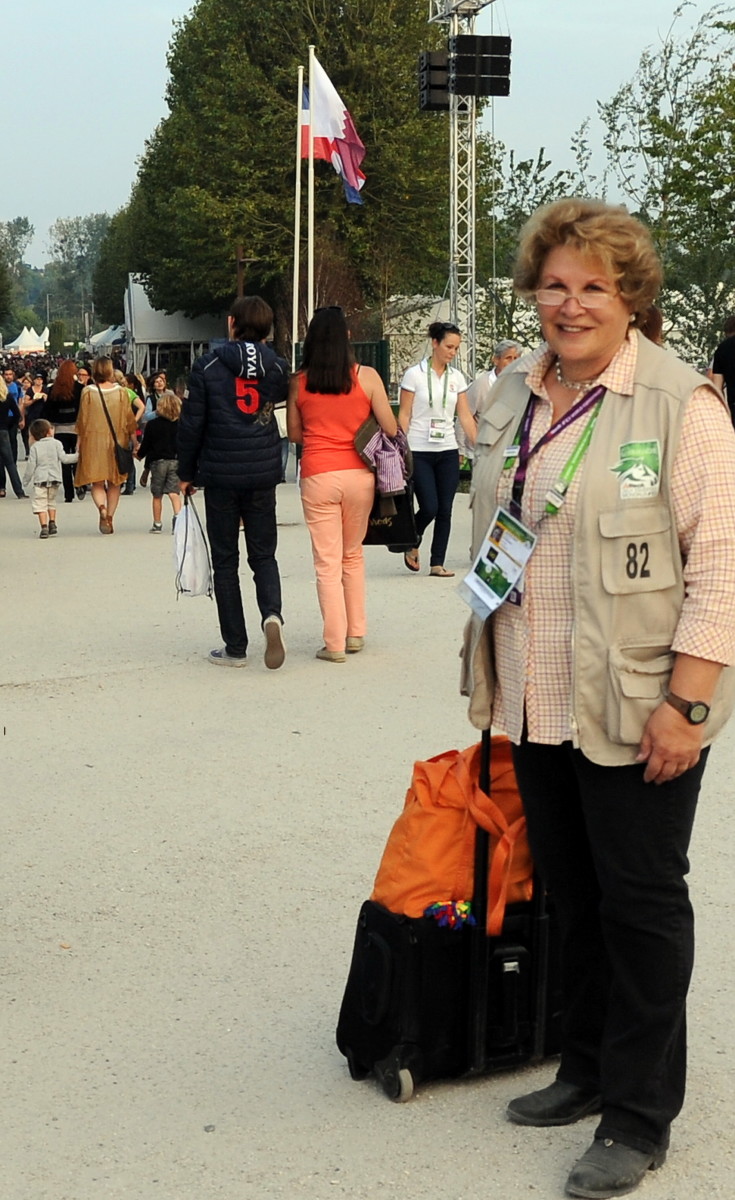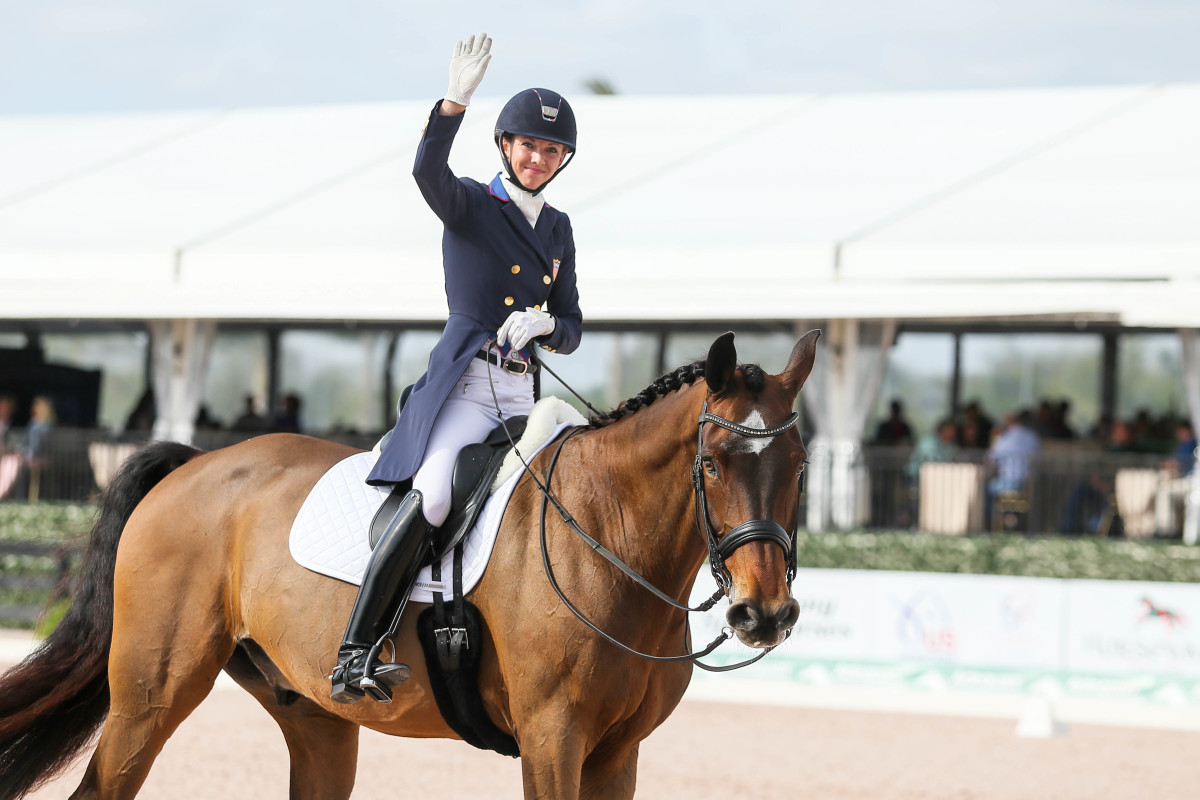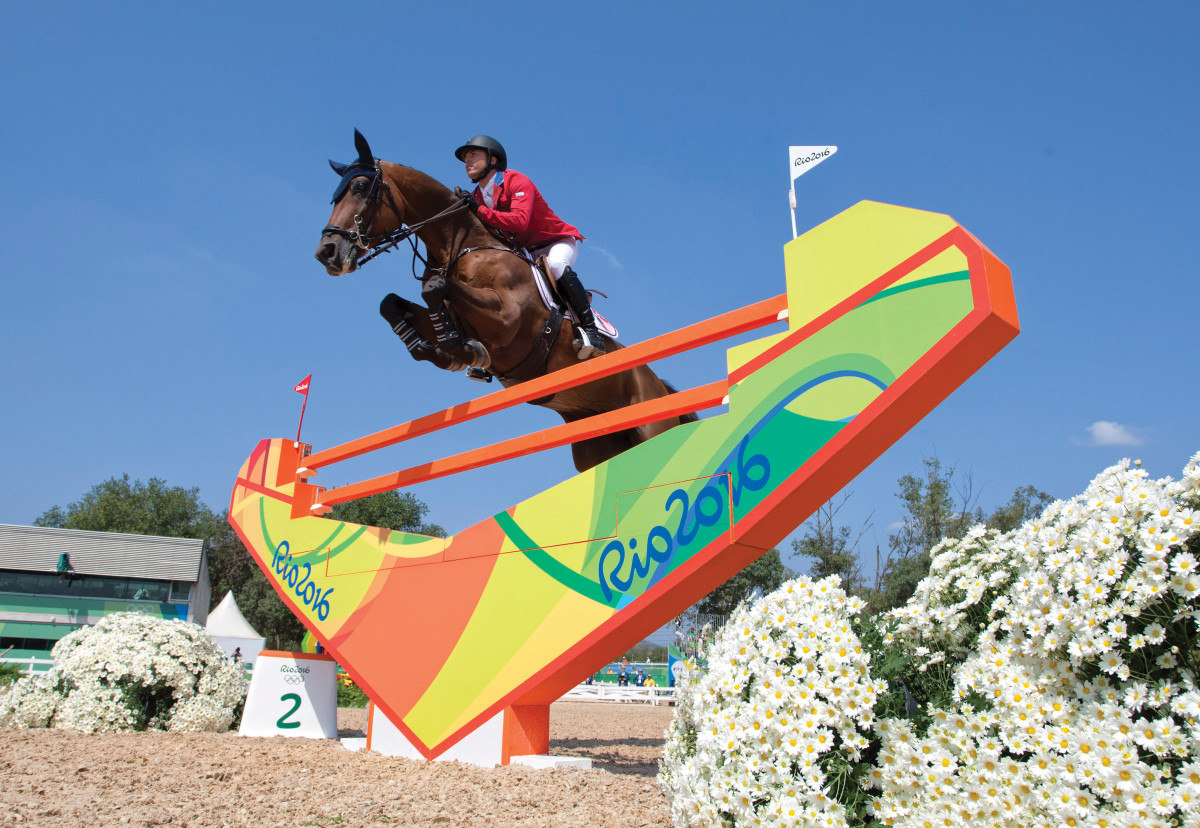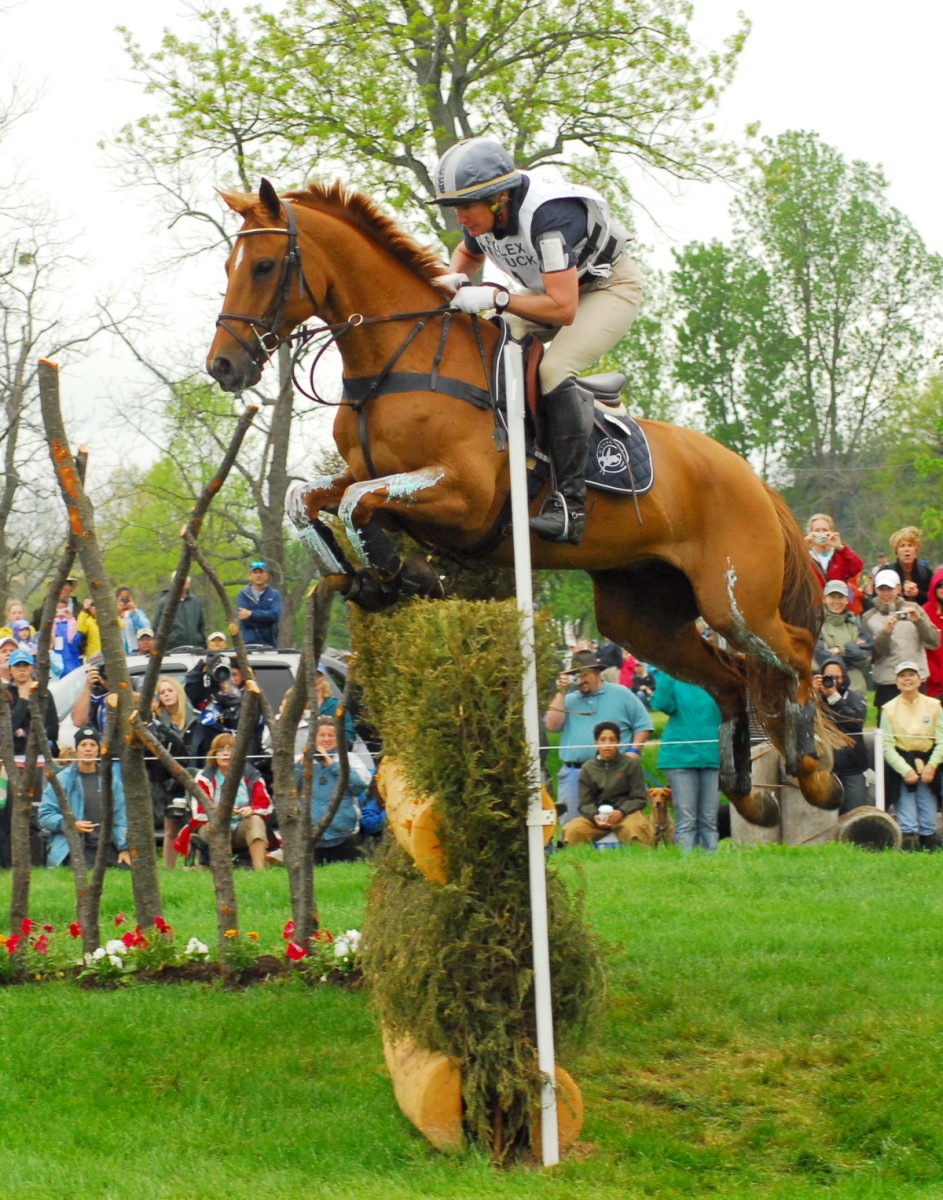
Award-winning photojournalist and Practical Horseman contributor Nancy Jaffer edited the U.S. Equestrian Team Foundation’s book Riding for the Team: Inspirational Stories of the USA’s Medal-Winning Equestrians and Their Horses. The book chronicles the lives of those who dreamed about competing for their country and “made it,” sharing inspirational stories from the eight equestrian disciplines of show jumping, dressage, eventing, driving, vaulting, reining, endurance and para-dressage. Readers are immersed in the personal histories of the medal-winning riders, drivers and vaulters who have dominated American equestrian sport over the past 28 years. Athletes tell their stories and those of their horses during the years they honed their talent and dedicated their lives to representing their country in the Olympics, World Equestrian Games, World Championships and Pan American Games. You can purchase the book, which is published by Trafalgar Square Books, at www.uset.org/riding-for-the-team-book-sale/.
Nancy has covered nine Olympic Games and her articles have appeared regularly online and in the pages of Practical Horseman and Dressage Today magazines. She’s a contributor to Horse & Hound magazine, Horse International and In Stride and she writes the “DueSouth” column on the Horse Sport web site. She has her own web site, www.nancyjaffer.com, and she wrote a weekly newspaper column on equestrian sports that appeared in The Star-Ledger of New Jersey from 1972 until 2015.
In this episode, Nancy recounts anecdotes from the lives of many Olympians, including show jumpers Kent Farrington, McLain Ward, Laura Kraut, Rich Fellers and Lucy Davis; dressage riders Laura Graves, Steffen Peters, Guenter Seidel and Debbie McDonald; and eventers Boyd Martin, Karen O’Connor and Amy Tryon.
This podcast episode is sponsored by Perfect Products.
You can listen to the full interview wherever you listen to podcasts, but in the meantime, here is a snippet of our conversation.
Listen to full interview.
Are there any general insights that readers can take away from the book that you found as you were compiling it?
The mantra, I would say, for everybody who’s involved in horse sports, and you learn this one way or another, is never to give up and if you’re discouraged, don’t dwell on it but move on. I think of the setbacks that so many people had and the pressure that they were under. Laura Graves, let’s use her as an example. She broke her back in a fall from this horse that was really sort of uncontrollable, Diddy, who became such a legend, such a fabulous horse, but did not have and easy time and she finally put him up for sale but nobody bought him. And that also, there’s so much karma in these things and fate plays a role and if somebody had bought Diddy, well maybe they would have gone to the Olympics or maybe he would have been retired early because they couldn’t ride him, but the fact that things worked out the way they did made it possible for her to make a name for herself and a name for him and to serve the U.S. cause so well.

It seemed that several of the riders had talked about the mental aspect of the game and never giving up when into the pressure—whether it was in competition or making horses work. One that comes to mind is Kent Farrington. He had talked about in this sport so many things are out of your control and what’s in your control is managing your horses and having people around you to support them.
An example of Kent and his really tough go-getter attitude is he was injured when he fell off a horse he didn’t know very well. His leg was broken and he started rehabbing as soon as the operation was over and he’s been winning ever since. He just doesn’t take ‘no’ for an answer. It’s a funny story about Kent because for Christmas when he was a child, he and his sister got plastic horses. Well, neat, something nice to find under the Christmas tree, but not for Kent, he gave his to his sister and said, ‘I can’t ride a plastic horse in the Olympics.’ As it turns out, his real present was a pony and his parents took him out to see him. But that was an example that even as a child, he knew what he wanted to do and, of course, he wound up doing it.

In Karen O’Connor’s section, she talks about Biko and Teddy, who were for sure very different in size and stature and I know you know those horses well, could you talk a little bit about them?
Teddy was a pony and that made him such a crowd-pleaser. Who thinks a pony could go around a five-star at Kentucky? I remember Jane Atkinson, who ran Rolex Kentucky for many years kept an eye on him and said that if he was ever struggling at any point she was going to have the stewards stop Karen so that he wouldn’t overreach from what his ability was. But it turns out that his ability was just enough to do anything that he wanted. He was just a special horse and one that captured the crowd and anybody who watched him could see that because of his size, he was amazing and they became instant fans, I think.

Biko was just the polar opposite and a real tribute to Karen that she could ride both horses so well. Biko was absolutely huge and dynamic and took quite a bit of doing, shall we say. But he was one of the best horses ever that we’ve seen in eventing on the U.S. side. And he was “Horse of the Year,” and “Horse of the Century” for the 20th century because he was just so consistent. He was her horse at the 1996 Olympics. As a young horse, he was really feral. The horses in Ireland are often turned out for several years so they’re not as accustomed to human contact as many of the horses that we raise here. It took her two years before she could get on without someone holding him.
And they’re all so different when you think about it. The contrast between Teddy the pony and Biko was obvious because of their size, but you have to think about the contrast among all the horses that these very experienced riders are involved with because the personalities are different, the abilities are different and they have to suss them out and figure out what makes them tick and how to get the best out of them.
There’s so many wonderful stories in this book. Are there any other stories that our listeners might find interesting?
I think the story of Debbie McDonald is inspiring because a lot of people don’t realize that she was a hunter/jumper rider and doing quite well in California and she had a very bad fall. This was shortly after she had a baby and she was reluctant to keep jumping because it can be dangerous and she felt responsibility to her child. Her husband suggested that she go into dressage, which she had no experience at all with dressage. And she said, ‘OK, I’m going to do it.’ She went to Hilda Gurney, who was at that time a top trainer in California and had been on the 1984 Olympic team. She learned dressage from the ground up and obviously was successful. She was a double-gold medalist at the 1999 Pan American Games and she came very close to an individual medal on the silver medal team at the 2002 World Equestrian Games and of course, she was on our bronze medal Olympic team at 2004 Games. Her advice was always that if you work hard every day, show up on time and give 100 percent to every single client and horse, you’ll find that a lot of people will come and support you and you’ll be very successful.

Listen to the full podcast here.
About the Practical Horseman Podcast
The Practical Horseman podcast features conversations with respected riders, industry leaders and horse-care experts to inform, educate and inspire. It is co-hosted by Practical Horseman editors. Find the podcast at iTunes, Stitcher and Soundcloud or wherever you get your podcasts.






